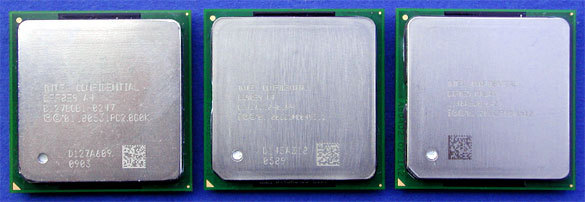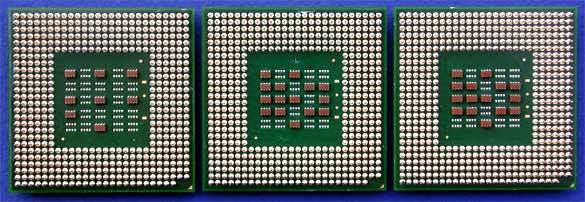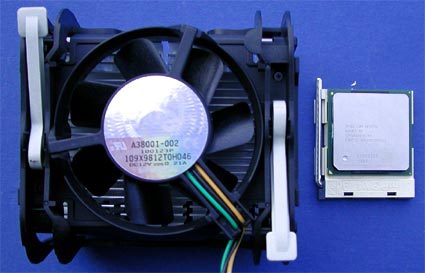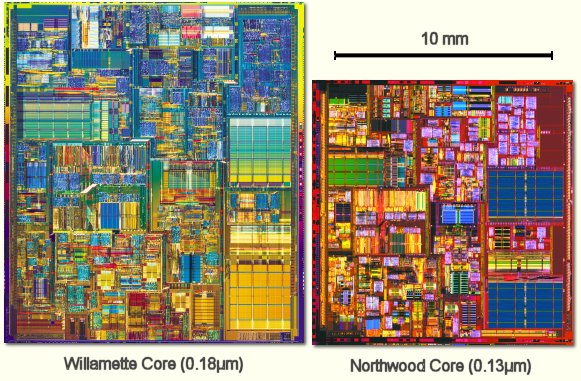Pentium 4/2200 vs. Athlon XP 2000+
Pentium 4/2200: Intel's Technological Lead
Pentium 4 processors compared: P4/2000 with the Willamette core (left), P4/2000 with the Northwood core (middle) and P4/2200 also with the Northwood core (right).
A view of the back of the same processors, in the same order as the previous image.
Size comparison: the new Pentium 4 is factory-equipped with a huge CPU cooler.
With the introduction of the Northwood, Intel switched over to a 0.13 micron production process. In addition, the manufacturer uses wafer disks with a larger diameter. While the previous silicon disks were 200 mm wide, the new ones are now 300 mm. Through this increase in diameter alone, the wafer gains more than double the amount of surface space, and the result is that more than twice the number of CPU dies can be produced per wafer. At the same time, because Intel also moved the manufacturing process from 0.18 µm down to 0.13 µm, a single wafer can yield approximately triple the amount of processors. To make this calculation clearer, we have provided some equations:
Wafer surface: π * d² / 4
Surface (200 mm wafer) = 31417 mm²
Surface (300 mm wafer) = 70688 mm²
Get Tom's Hardware's best news and in-depth reviews, straight to your inbox.
CPU die (P4, Willamette) = 217 mm²
CPU die (P4, Northwood) = 146 mm²
The absolute yield is derived from the quotient of the wafer and die surfaces. While the previous wafer and the Wilamette core provided a maximum of 144 processors (theoretical, without waste), the bigger wafer and the new CPU core yield a maximum of 484 processors.
This image shows the two dies side by side. You can see the larger second level cache of Northwood when you compare the lower right quadrants of the two. All in all, Northwood is significantly smaller than Willamette, but still not exactly tiny.
Current page: Pentium 4/2200: Intel's Technological Lead
Prev Page A Detailed Comparison: Pentium 4/2200 Vs. Athlon XP 2000+ Next Page Chipsets/Boards For Pentium 4 And Athlon XP


